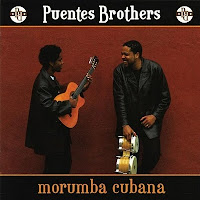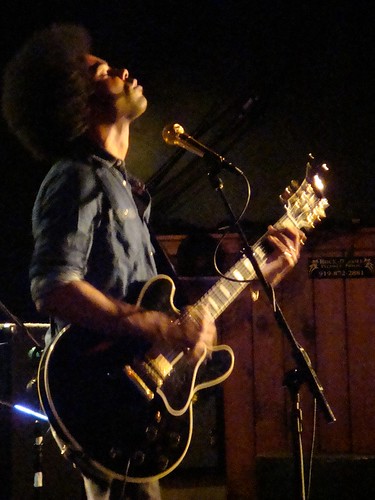
Or course, this tour was booked long before. But what impressed me wasn't just Alex' clarion voice, his hot guitar pickin', or his adorable sneakers (the same shiny, silver hightops that he wore to the Latin Grammys). He played this show like he was earning our love, one listener at a time. With several Junos and a Latin Grammy in his pocket, Alex Cuba is still paying his dues. And he doesn't seem to mind at all.
Something of a perfectionist, Alex (whose first instrument is bass) plays almost all the parts on his solo albums; on tour, he doesn't like to go bigger than a trio. He seemed very disciplined about the whole touring thing, and very happy to be building his audience, one beerhall at a time. From Raleigh, next stop: Vienna, Virginia, on a 14-leg tour.
Re: The Alex Cuba trio band:
Bass player David Marion is a Paris native; his mother is from Guadeloupe. He has played some zouk, but mostly gospel back in Paris (who knew!). It figures; he has that light-from-within thing when he smiles. He's toured with Alex since 2006.
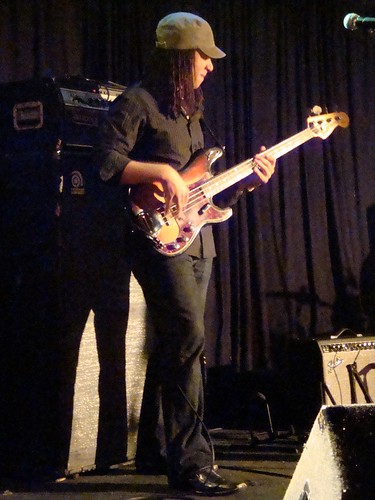
Drummer Max Senitt is based in Toronto, where he's involved with the Latin jazz scene, and gigs regularly with the exquisite Cuban pianist Hilario Duran. Hilario seems like a laid-back dude, I saw him live backing Jane Bunnett, but as Max says, he's a "madman" at the piano. I have been playing his recent solo disc Motion on WXDU (Azucar y Candela Wednesdays, 6-8 pm, wxdu.org). Max has toured with Alex for about two years.
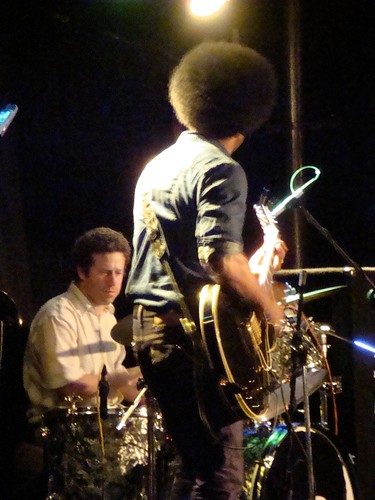
There is only one word for the reception Alex Cuba + trio received in Raleigh: an embrace. Please come back soon, fellas.
For the home audience, here's video of Alex's first English lyric tune, which he graciously dedicated to Berkeley Cafe promoter Marianne Taylor:
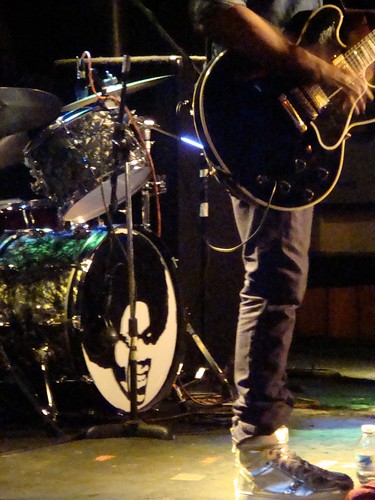
Alex is dreamiest alone at the mic, with his guitar and hooky songwriting. Here's a snippet of the first encore we received, his lovely ballad "Solo Tu," from the newest, self-titled album Alex Cuba:

